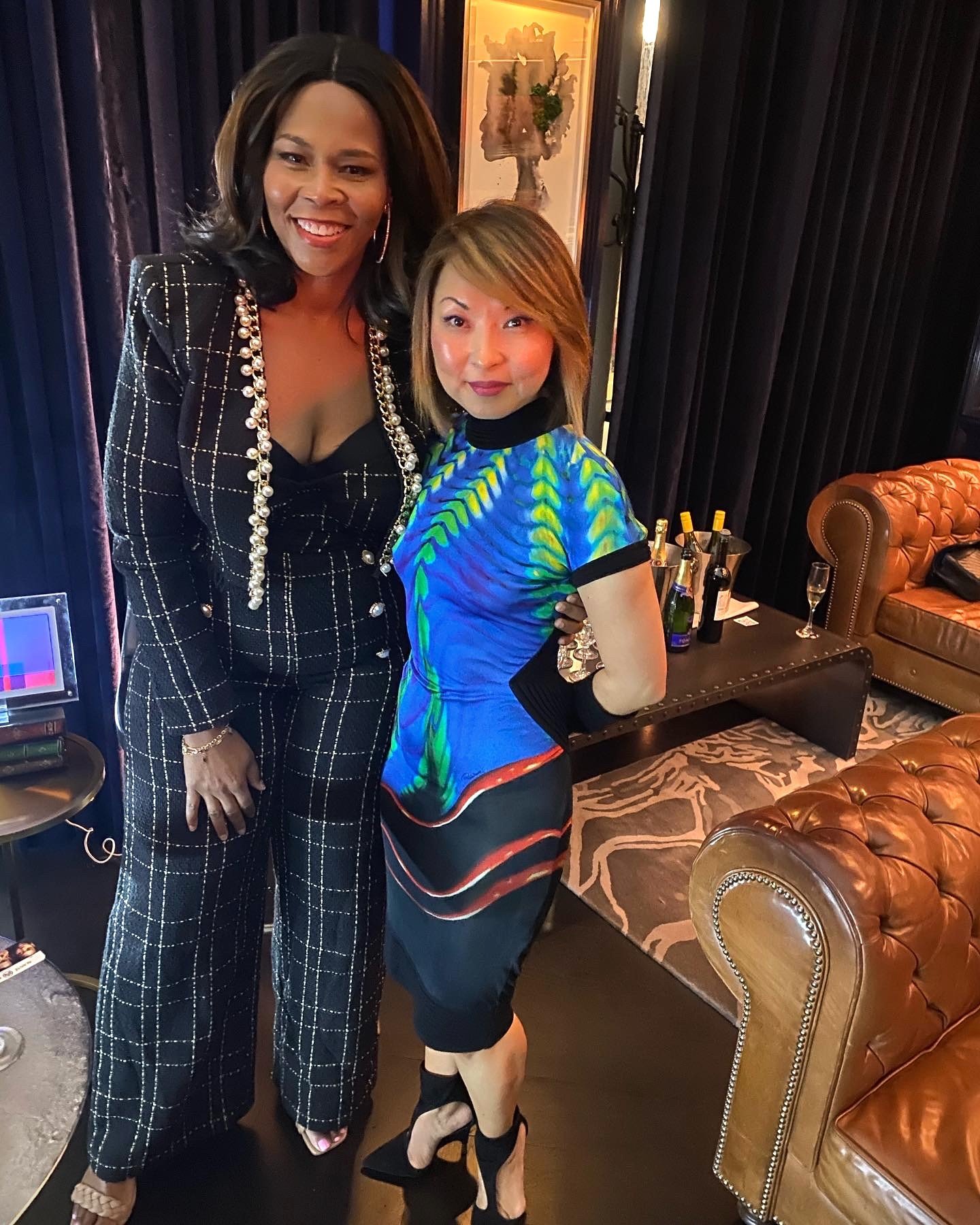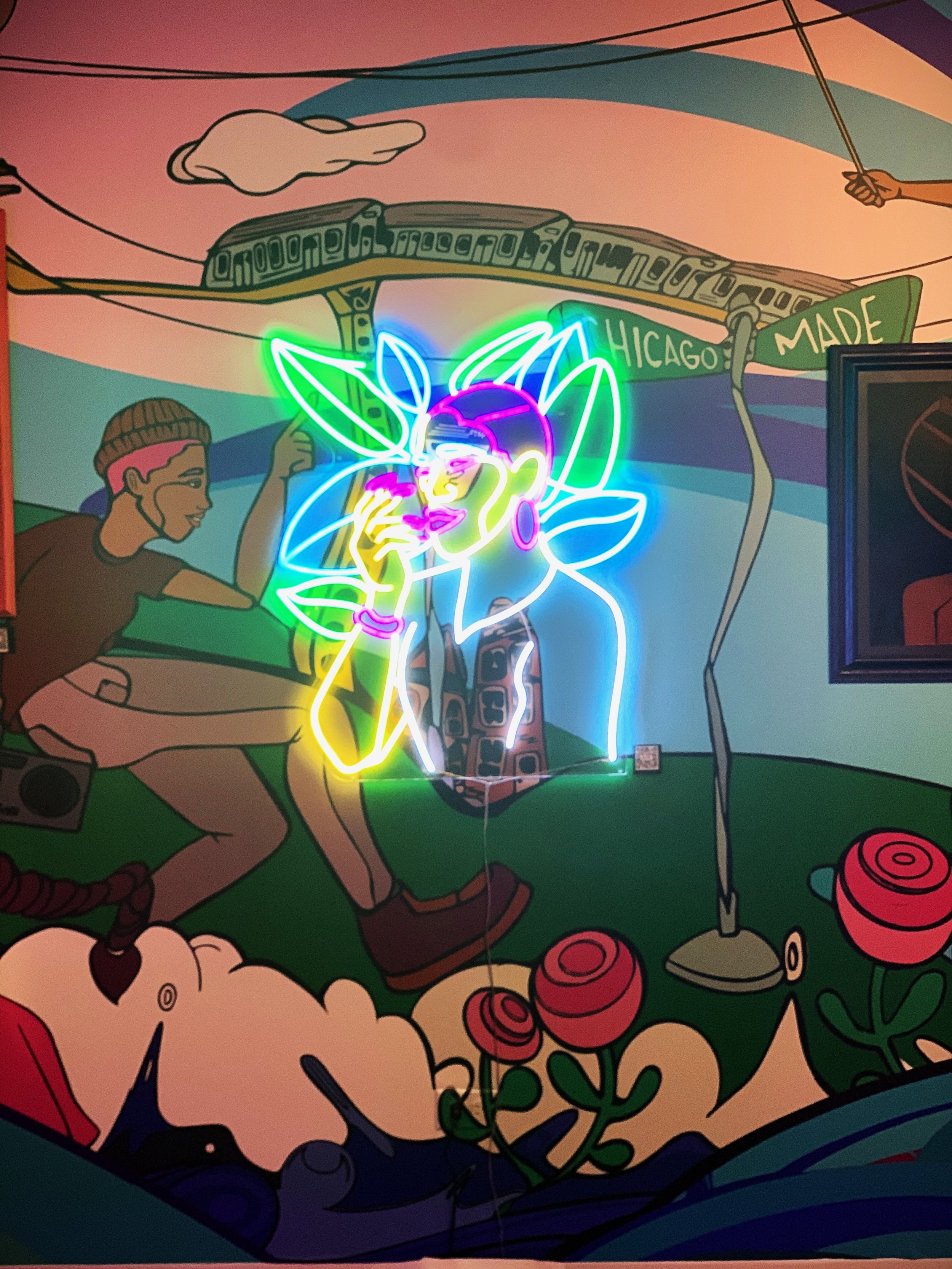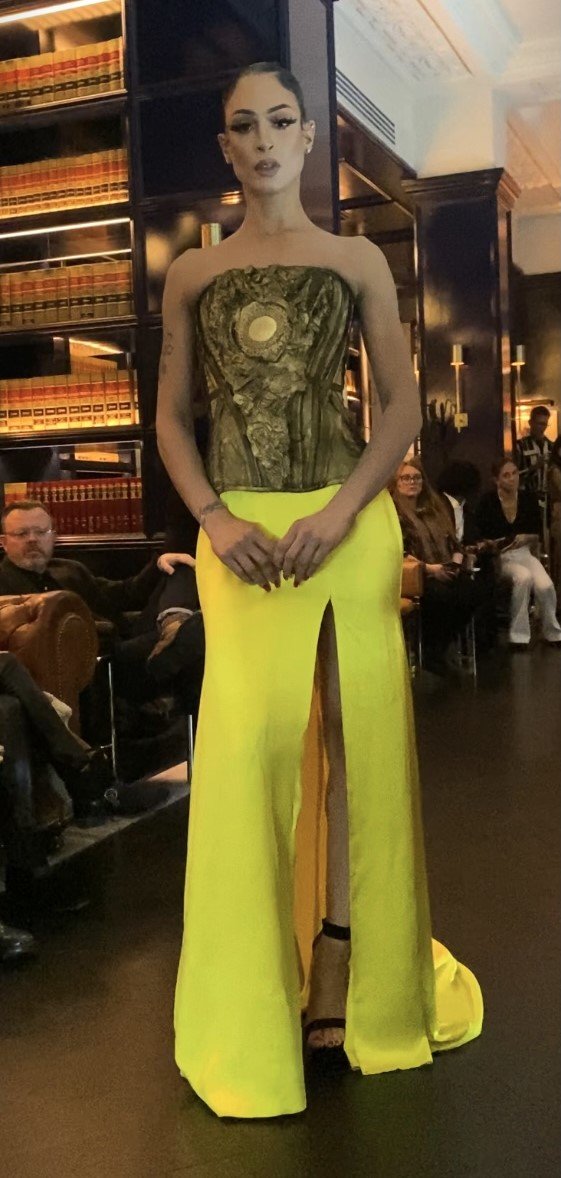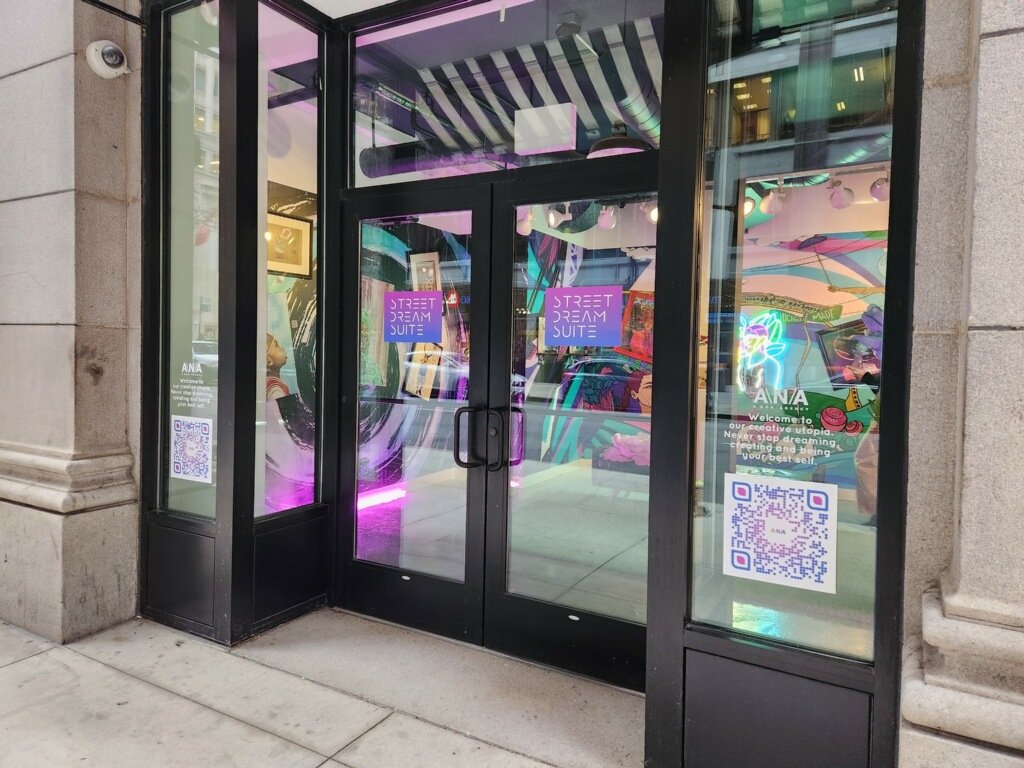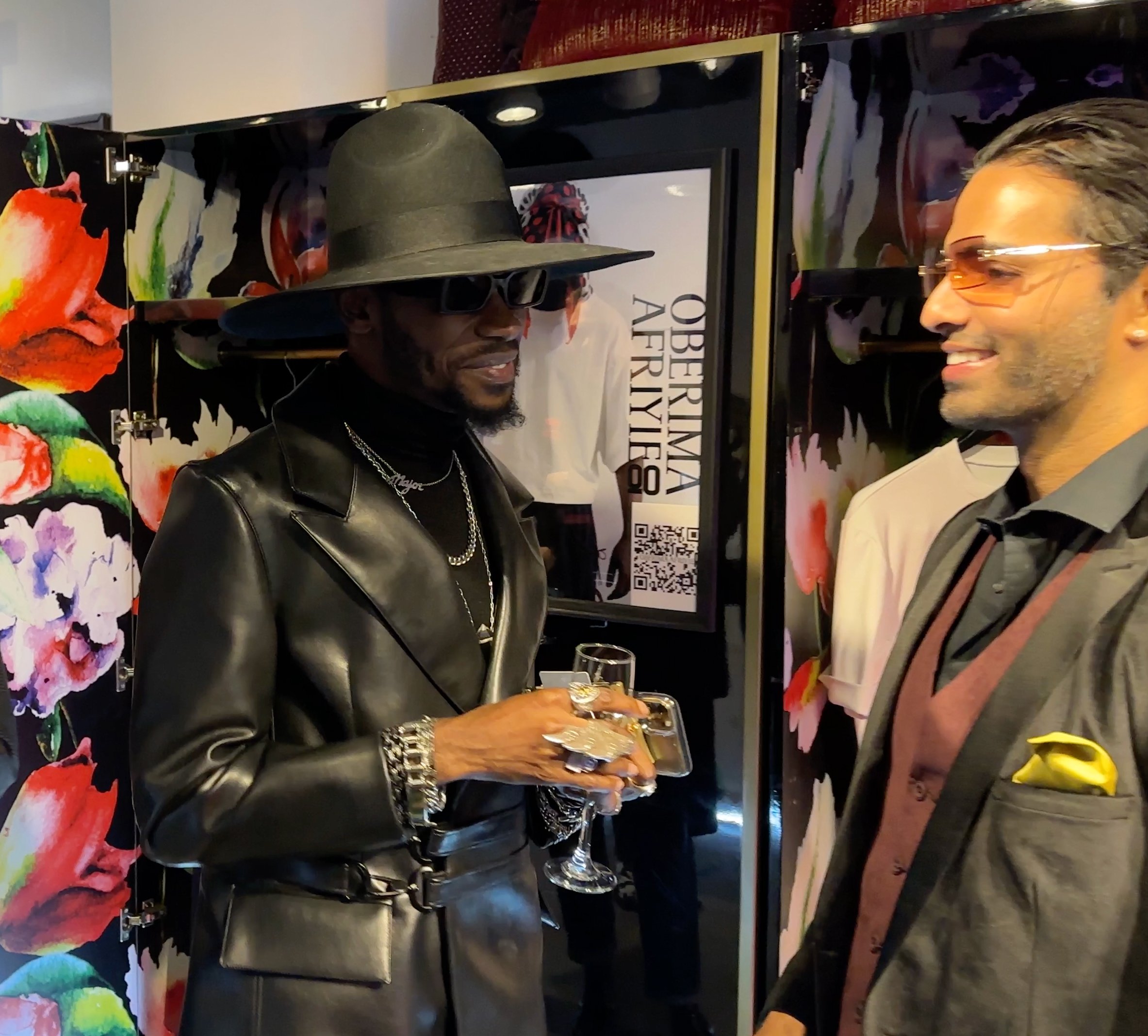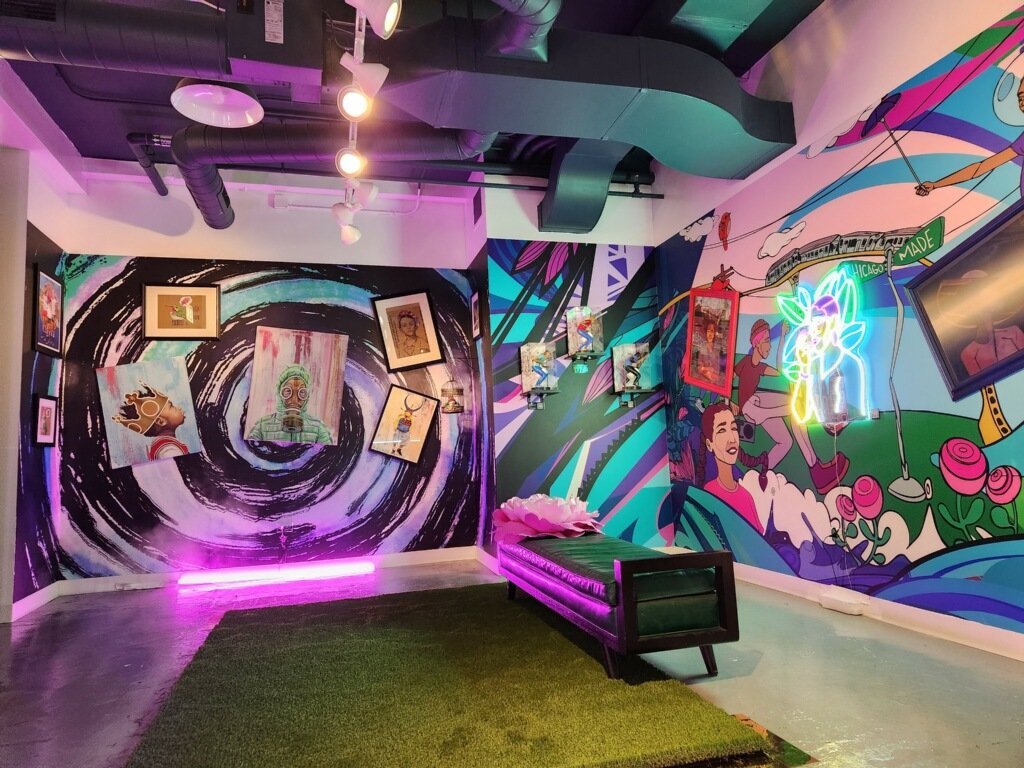Champions of Success Fashion Panel
Dionne Williams (moderator), CFDA President CaSandra Diggs, CFDA Connect’s Elliot Carlyle, and Chicago designer Delvin McCray
On Friday, November 18th, The Curio had the privilege of attending the Champions of Success panel organized by A Non-Agency and Brand Closet Showroom as part of their Chicago Escape event at the Kimpton Gray Hotel. The Escape experiences deliver immersive, curated spaces, and activations. are the brainchild of Michelle Collins who also produced the experience.. While the format changes depending on the location, their overarching goal is to redefine retail by creating a hospitality-inspired environment that invites guests to “relax, discover, and shop” in unique settings.
The evening started with a chance to explore the Street Dreams Suite- a space that was completely built out for the event- that combined art, design, fashion, music, and even fragrance for a fully immersive experience.
After checking out the suite, guests proceeded to the Gray’s cozy Vol. 39 bar for an intimate conversation on the state of the fashion industry with a focus on emerging brands. The panel was moderated by Dionne Williams, creator of Emerge! Fashion Runway Show, and featured CaSandra Diggs (CFDA President), Elliot Carlyle (Consulting Director for CFDA Connects), and Delvin McCray, a Chicago fashion designer and Project Runway contestant.
It’s not often that a lineup of heavy hitters from the fashion industry descends on Chicago, and the opportunity to listen to their thoughts on the changing post-pandemic retail landscape was not lost on the audience. It’s even more unusual for a panel like this to, as Collins put it, “poke the bear” and talk freely about controversial issues like lack of city governmental support for fashion, the way Chicago’s largely segregated society keeps designers and consumers from discovering and working with people from outside their communities, and the visibility challenges that all designers face as they start-up.
Moderator Dionne Williams, CFDA President CaSandra Diggs, CFDA Connect’s Elliot Carlyle and Chicago Designer Delvin McCray
Diggs and Carlyle explained some of the ways that the CFDA is trying to fill in the gaps with their funding and development initiatives which can be accessed by all American designers-not just CFDA members. Carlyle also touched on his work with local designers through a partnership with the Chicago Fashion Coalition. McCray spoke specifically to how creating a brand outside of a fashion capital poses unique challenges due to the lack of infrastructure in terms of large-scale manufacturing and easy access to things like fabric and materials and how he’s trying to help other local designers with services like pattern making. One of the many issues those outside of the fashion community are largely unaware of.
The moderator opened the floor, and the audience was able to engage with the experts. Several people were called on to talk about their part in the Chicago fashion community, including Marquan Jones from the Chicago Fashion Coalition, Isa Giallorenzo, editor of Chicago Looks, and Maggie Gillette of The Curio, allowing for diverse points of view to be shared and giving the audience opportunities to see some of the ways they could get out of the “silos” and connect with industry changemakers.
Attendees left the event invigorated by the possibilities Chicago can offer their talented design community and with actionable things that designers and consumers could do to support the growth of smaller brands.
Curiously Chic readers can help too! So here are some takeaways from the Champions of Success that you can implement if you want to encourage the growth of our burgeoning local fashion scene. Small brands need your support. Showing up and buying from local labels allows them to keep creating and encourages innovation.
It’s also important to remember that government funding is paramount for all forms of the arts. While for more than a decade Chicago funded a week-long Fashion Focus Week in Millennium Park and around the city- that ended in 2015. And now for the past several years, Chicago fashion programs have not received any direct financial aid from the state or city - especially from the key Department of Cultural Affairs & Special Events (DCASE). Call and write your local officials to let them know that fashion matters to you- and that it can drive economic gains far beyond for just those in the industry.
It was so refreshing to listen to a panel that was willing to discuss the challenges that designers face in these rapidly changing times and not shy away from the less pretty truths behind an industry most only known for its glossy exterior. The ability to tackle these tough issues is precisely the sort of leadership that American fashion designers need today.



